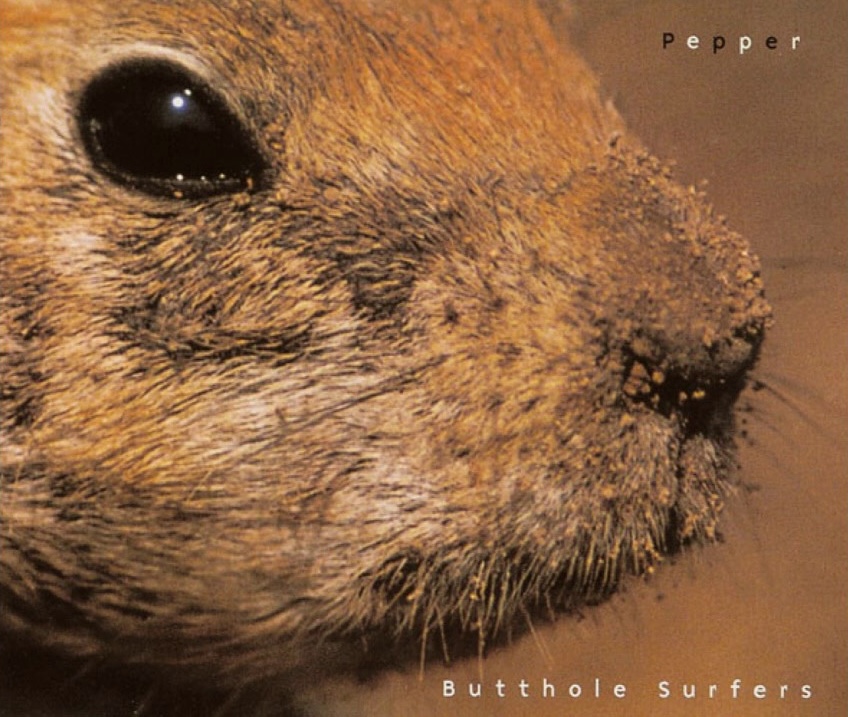When the Grammy nominations came out back in December, they looked significantly younger and hipper than usual. This legendarily conservative institution, the one that recognized late-period Steely Dan studio farts at the expense of Stankonia, Kid A, and The Marshall Mathers LP, had turned in something like a relevant list of contenders. Sure, hip-hop was shut out of the top categories as usual, but the Album Of The Year docket was stacked with Stereogum favorites: the Black Keys, Frank Ocean, Jack White -- even Mumford & Sons and Fun., sort of -- ensuring the winner would have to be somebody from this generation, at least. Critically revered radio stars Miguel, Taylor Swift, Rihanna, and Usher were in the mix, not to mention Pazz & Jop winner/Gummys contender Carly Rae Jepsen. For the most part, the rappers that did wedge their way past the gatekeepers exist in that widespread popularity/critical-acclaim Venn overlap too: Jay and 'Ye, Drake, Nas, The Roots. They even found room for Fiona Apple, M83, and 2 Chainz. The list wasn't perfect -- particularly the hard rock/metal and EDM categories, which seemed to be scraped together off the top of somebody's (likely balding) head -- but for once this crop of nominees reflected today's cultural climate more than somebody's vacuum-sealed concept of authenticity.
It almost seemed like Arcade Fire's Album Of The Year win for The Suburbs in 2011 and Bon Iver's Best New Artist title in 2012 had been, Tumblrs be damned, precursors to a greater paradigm shift, one where the internet stood toe-to-toe with radio, underdogs stood a chance, and "Who the hell is that?" (obscure) trumped "Who the hell is that?" (old). Then again, you could make a strong case that this was less about the Grammys getting hip and more about the gentrification of the underground; the poptimism and retromania that gripped indie music for the past decade finally culminating in music that fit snugly into Grammy-friendly molds. After all, Arcade Fire bites Springsteen hard, and Bon Iver covers fucking Bonnie Raitt songs. Just look at that Album Of The Year list again: All of the contenders are mom-safe and Starbucks-ready. Still, even if the Grammys' stridently traditionalist foundation wasn't likely to be shaken, we seemed primed for something more entertaining and varied than last year's Adele-centric sleepwalk, a ceremony relevant to, if not indie culture, youth culture at least.
In a sense, that's what played out last night at the Staples Center. The Grammys spread the love this year. There were a few big winners, but even they collected most of their accolades during the pre-show: Dan Auerbach garnered four trophies (one for Producer Of The Year and three with The Black Keys) while hitmakers Skrillex, Gotye, Jay-Z, and Kanye West each nabbed three. The most prestigious categories were largely split. Mumford & Sons won Album Of The Year for Babel and performed twice but didn't come close to Adele-style domination. Neither did Fun. despite delivering a fake-rain-soaked rendition of "Carry On" and claiming a pair of major honors (Best New Artist and Song Of The Year for "We Are Young"). Gotye and Kimbra won Record Of The Year for the Prince-approved "Somebody That I Used To Know" but didn't even get to perform it. The performance schedule was somewhat diverse as well, though there was a noticeable dearth of hard rock (understandable given the genre's subterranean status these days), punk (understandable given that the concept of punk is diametrically opposed to an event like the Grammys), and EDM (perplexing in this Electric Daisy generation, but maybe last year's Deadmau5/David Guetta/Foo Fighters/Chris Brown/Lil Wayne clusterfuck scared them off).
Ultimately, though, those same old Grammy values dominated. White males with guitars walked away with all the top honors; even poor Carly Rae couldn't sniff a statuette. (They didn't let her perform, either; this is crazy.) Dave Grohl showed up with the "edgy" punk caricature from NCIS on his arm to pimp his rockist Sound City documentary. Almost everyone skewed retro, especially the sepiatoned Justin Timberlake. At least four separate country performances went down, as did a Maroon 5/Alicia Keys duet. Mumford junior varsity squad the Lumineers were touted as an "indie success story," which I guess is technically true since they're on an independent label, but come on. Utterly safe (though utterly charming) Idol champs Carrie Underwood and Kelly Clarkson trumped far edgier competition. Miguel and Ocean both scored awards, but not in major categories, and Miguel was relegated to a Wiz Khalifa-poisoned half-performance of "Adorn" before introducing, of all things, Best Country Vocal Performance. Rappers grabbed the mic primarily to accent R&B songs; meanwhile, Elton John -- who hasn't had a genuine hit since Princess Diana died 16 years ago -- performed multiple times AND somehow merited an acoustic tribute from token Spanish-language singer Juanes.
The one exception to the rappers-as-sidekicks rule, as well as the lone EDM moment and the closest thing to punk rock, was the grand finale, which found host LL Cool J and Chuck D blasting through "Welcome to the Terrordome" with assists from Tom Morello, Z-Trip, and Travis Barker. Having just read Jeff Chang's monumental hip-hop history tome Can't Stop Won't Stop, I couldn't help but appreciate how far Chuck and LL have come to be performing that song on that stage. Still, the damn thing was released in 1989, and they only reason they let it happen is because LL has been tamed into one of CBS's family-friendly primetime personalities. (As commenter Sanjay Devarakonda put it, "White people love LL Cool J because he makes Will Smith look like Malcolm X.") Of course, any pretense of youth and vitality for the show or its host had already dissipated around the time of LL's third "Hashtag Grammys" clunker. On "music's biggest and most tweeted night," the Grammys embraced social media with a tentative-yet-enthusiastic gusto usually reserved for When Parents Text. This was indicative of the night at large: There was some forward motion, sure, but only that of a paleolithic creature lurching reluctantly into the future to stave off extinction. (Call it the NARASour?)
That's better than nothing, though. Institutions don't change overnight, and Sunday was littered with encouraging baby steps between the aggravating "same as it ever was" moments. Clarkson may have never heard of Miguel before last night, but she sure knows him now. Seacrest-in-training Hunter Hayes showed country boys can be emo too. Even if Best Rap Album didn't make it to air, at least they gave it to the trendsetting, groundbreaking release like Drake's Take Care. Best Rap Performance winner "Niggas In Paris" at least captured the zeitgeist of 2011 instead of, like, 1993. (Sorry, hard rock fans.) Rock-star dates Lena Dunham (girlfriend of Fun.'s Jack Antonoff) and Carey Mulligan (Marcus Mumford's wife) represented a newer, fresher wave of celebrity. Tyler and Earl's mere presence in the building -- kicking it with Jack White, natch -- was a triumph for the Tumblr generation. And even if the winners skewed mind-numbingly conservative, awards shows aren't really about celebrating the winners; why else would they hand out so many of the awards ahead of time? Ceremonies like these are more about spectacle, and in terms of spectacle, these Grammys delivered more often than not. Some storylines:
The enduring power of Idol: Although post-Mumford American Idol champ Phillip Phillips would have been right at home last night, he was nowhere to be found. But O.G. Idol success stories Kelly Clarkson and Carrie Underwood were heavy in the mix: Both won awards, delivered hilariously genuine acceptance speeches (Carrie: "Golly!") and turned in some of the most undeniable vocal work of the night. Word to Simon Cowell: These ladies can sing. Clarkson, whose career seemed all but dead a few years ago, beat out critically adored upstarts Taylor and Carly Rae and absolutely stunned with her Patti Page/Carole King tribute. And Underwood delivered one of the most visually stirring performances of the night. Speaking of which...
Vivid visuals: Some set designers had a blast conceiving these performances. T-Swizzle's elaborate Tom Petty Alice In Wonderland sendup-meets-Circus-era Britney mashup was small potatoes compared with what followed. (Taylor can at least take solace in outdoing Fun.'s preposterous fake cloudburst.) Timberlake convincing CBS to run "Suit And Tie" through an Instagram filter was mega-corny, but his "JT and the Tennessee Kids" ensemble was an example of how to do retro right, even if he had to borrow Mayer Hawthorne's sound and Robin Thicke's haircut to pull it off. Jack White switching from his all-female band during the midtempo "Love Interruption" to his all-male band for the raucous "Freedom At 21," while possibly sexist, was highly effective. Halfway through Underwood's performance, the lights went down and her huge silver dress transformed into a projection screen (replete with ovulation), which was awesome and far more inventive than I expected from such a straitlaced performer. And then there was Frank's world-sized, world-beating literal-Forrest Gump-homage "Forrest Gump" video production, a gloriously simple thing of beauty that almost distracted me from his poor pitch. (Blame Chris Brown?)
Hilarity ensued (this is just a tribute edition): The most prominent tribute, of course, was given to serious roots-rock musician Levon Helm, who merited a respectable rendition of "The Weight" courtesy of Zac Brown, Mavis Staples, them Mumford boyz, Alabama Shakes powerhouse Brittany Howard, and Sir Elton John, which also weirdly doubled as a tribute to the victims of Sandy Hook. But that's not nearly as weird as the Bob Marley tribute, which started with Bruno Mars performing his wonderful Sting ripoff "Locked Out Of Heaven," then Sting showed up to do a Police song, then, at last, Rihanna hopped on stage with Ziggy and Damian Marley to perform a jacked-up version of "Could You Be Loved." (A dopey-faced Chris Brown appreciated this far more than he cared for Ocean's triumph in the Urban Contemporary category.) Chick Corea, Stanley Clarke, and Kenny Garrett got less than a minute to honor Dave Brubeck. LL and Chuck D spent even less time paying tribute to Adam Yauch with a quick snippet of "No Sleep Till Brooklyn"; MCA deserved better. In terms of pure quality, Clarkson's tribute to Patti Page and Carole King won the night.
Hilarity ensued (loose lips edition): The funniest moments were the most unguarded and uncouth. A dress-code-flaunting Katy Perry, introducing Best New Artist: "And if you don't win, don't worry. I was never even nominated in this category, and I have my own eyelash line. Take that, Bon Iver!" Fun.'s Nate Reuss after winning Best New Artist: "I have to pee so bad." First-time winner Frank Ocean, opting not to picture the audience naked: "I want to look at you all as kids in tuxedos and being fancy and stuff like that." A seemingly intoxicated Jay-Z, regarding his co-honoree The-Dream's choice of a Boyz N the Hood ballcap to cover his Parental Advisory do-rag: "I would like to thank the swap meet for his hat." An exasperated Kelly Clarkson, upon winning an award she did not expect: "I got stuck to Miranda Lambert. There's a story and a song. For later, after alcohol." And then: "Miguel, I don't know who the hell you are, but we need to sing together. That was the sexiest thing I've heard all night."
Celebrity skin: Besides Jennifer Lopez, who felt compelled to point out how much of her right leg was dangling out of her evening gown (as if the leg wasn't already screaming "Look at me!"), there was precious minimal mention of the CBS-imposed Grammy dress code during the official broadcast. Leave that to E!, I suppose. Plenty of unspoken rebellion, though, with stars including Katy Perry and Rihanna putting themselves at risk of wardrobe malfunction. Adele was, of course, dressed like a grandmother, which goes to show why she is Queen of the Grammys forevermore.






